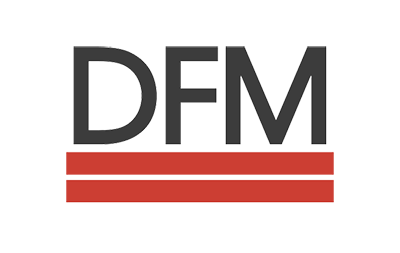Traffic management has come a long way in recent times. As such, many contractors now hire third-party firms to manage cars, trucks, and pedestrians around their sites, optimizing flow and reducing community impact.
DFM offers one such service with precision traffic control plans for commercial projects. Our team can devise plans that integrate with your project and enable you to implement safe and sustainable transportation solutions for those passing by.
What Is Precision Traffic Control?
Precision traffic control is a meticulously planned “maintenance of traffic” (MOT) strategy. The aim is to minimize congestion around a construction or project site while boosting safety for motorists and workers.
Plans reflect the type of construction work required, local traffic volumes, and detour routes. Planners analyze the typical use of surrounding roadways to evaluate peak usage times, movement complexity, and possible disruption levels.
Sites that leverage precision traffic control are better organized, safer, and friendlier to local communities. Moreover, local people feel less put out by building work when traffic can flow around it, improving your reputation.
CAD Drafting
Traffic control using CAD drafting involves creating computer-aided designs of local traffic situations to facilitate superior management. Drawings and simulations accurately represent:
- Signage and barriers
- Control measures
- Detours
The CAD drafting process begins with data collection and analysis. Our team gathers information about your project, including its location, traffic volume, speed control measures, and flow characteristics.
Next, we use CAD software to depict a scaled and accurate model of the site’s surrounding area using engineering plans, surveys, and consultations. Renderings can include:
- The adjacent road layout
- Any existing lanes running on or through the site
- Nearby roundabouts and intersections
- The positioning of traffic control devices, such as bollards, cones, and lights
- Where any pedestrian walkways will go
- Markings indicating the position of the construction or project site
- Additional annotations, such as local speed limits or existing lane closures because of another construction project
- The position and path of detours
Once we finish this step, we transmit the CAD designs to your engineers and project managers for approval. This step allows you to tell us about any additional details you’d like to include that might affect traffic flow.
You can use CAD drafting of traffic control to assist with your project once you are happy they are complete and comply with regulations. For example, it can be helpful when obtaining various permits and approvals from jurisdictional authorities. It can also help you communicate your MOT plan to stakeholders, including employees, outside contractors, and internal leaders.
Most site managers modify their traffic control plan over time. You may find that conditions on your site change, requiring you to reposition various elements as you progress. Again, CAD drafting facilitates this, showing you what your plans will look like in virtual reality.
What Are The Benefits Of Maintenance of Traffic Control (MOT) CAD Drafting?
The benefits of MOT CAD drafting are significant. Getting it right can improve how you operate busy construction sites in built-up areas. Here’s what to expect:
Better Accuracy
Estimating traffic control situations with paper drawings is challenging, even for experienced traffic management professionals. Understanding how vehicles will flow around a site requires ample data and processing tools.
Naturally, CAD drafting helps. The tool eliminates the need for guesswork by collating data and compiling it into a single model and “universal source of truth.” Contractors can seamlessly share this information with colleagues without worrying about errors and misunderstandings. MOT plans simply work.
Improved Safety
Properly implementing CAD-drafted MOT plans can also improve site safety. Understanding traffic flows reduces the risk of accidents and ensures vehicles have sufficient space to maneuver. Putting digital plans in place shows where collisions or worker injuries are more likely to occur, enabling superior mitigation.
Enhanced Scalability
Precision traffic control measures are also more scalable and flexible. Contractors can share CAD designs online or via the cloud, with multiple employees working on the concept. Firms can accommodate plan changes more easily.
Better Communication
Finally, CAD drafting improves traffic control communication. We design our software to be interpretable by non-technical employees who can’t use other systems. You can even use designs made using our software for public audiences.
Get Assistance With Maintenance Of Traffic Plans At Your Construction Site
So, if you want sophisticated CAD drafting for your MOT plans, contact us. Our team can help design your approach to traffic control from the ground up.




